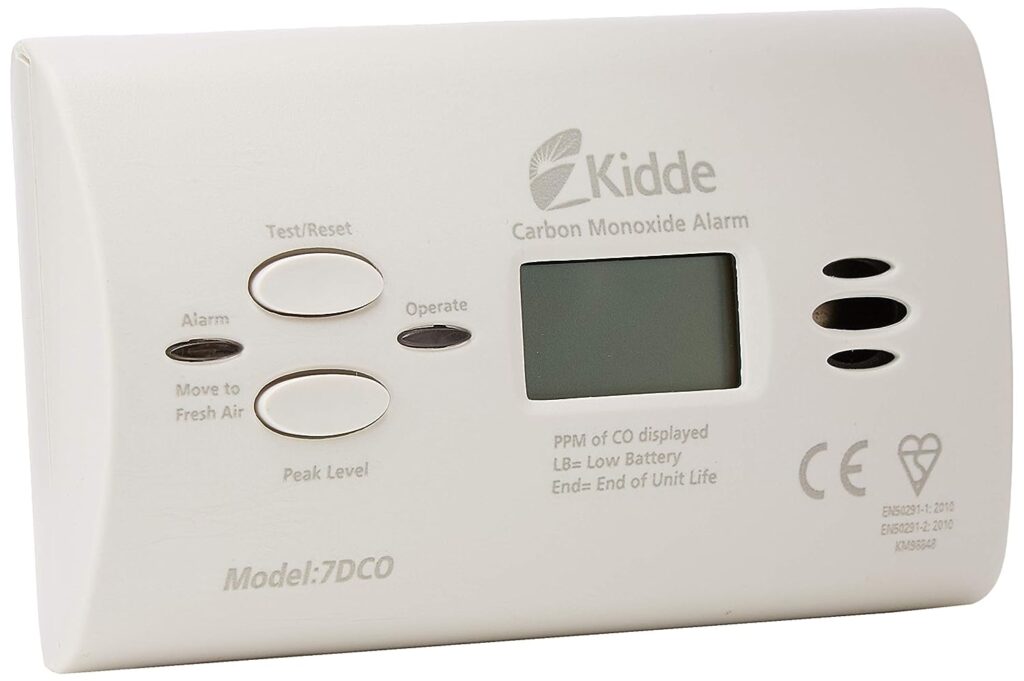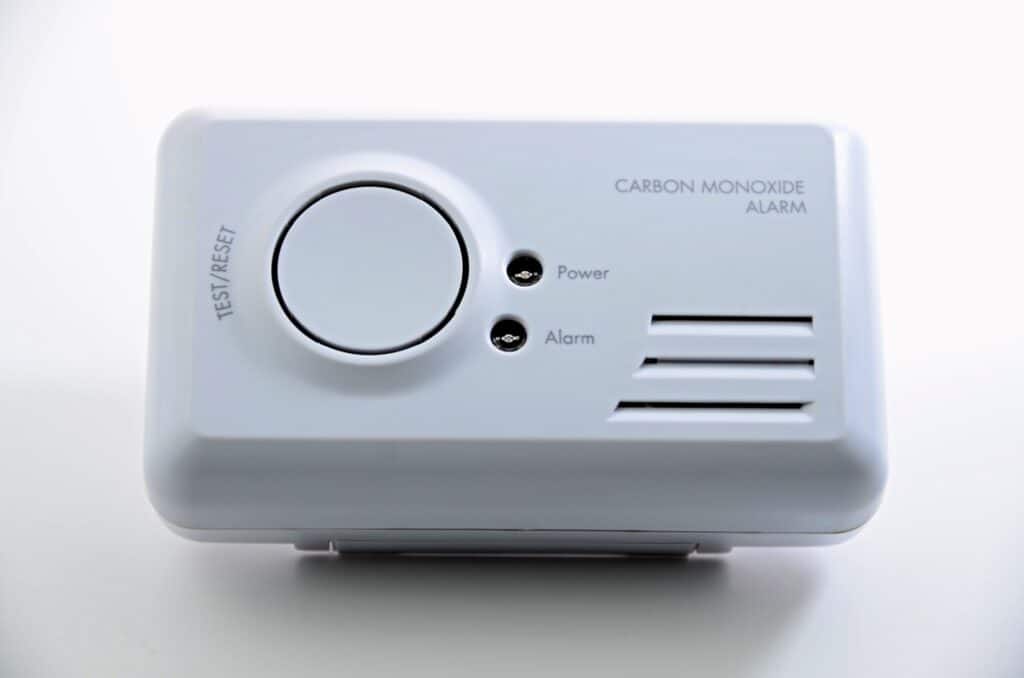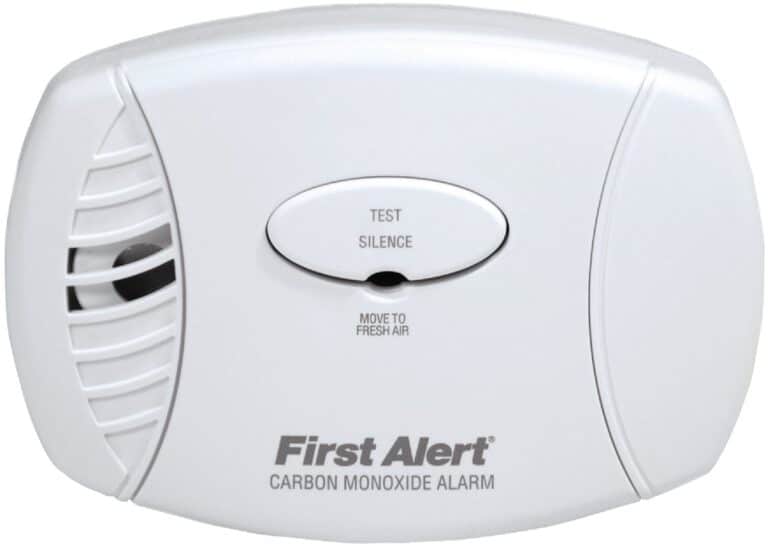Introduction
How To Stop A Carbon Monoxide Detector From Beeping: Carbon monoxide detectors are an essential safety device in every home. They are designed to detect the presence of carbon monoxide, a colorless and odorless gas that can be deadly if inhaled in high concentrations. These detectors emit a loud beeping sound to alert occupants when carbon monoxide levels are too high.
If you find yourself in a situation where your carbon monoxide detector is beeping incessantly, it is important to address the issue promptly. Ignoring the beeping can put you and your family at risk, as it may indicate the presence of dangerous levels of carbon monoxide in your home. Fortunately, there are several steps you can take to stop the beeping and ensure the proper functioning of your detector.
Firstly, it is important to determine the cause of the beeping. In most cases, a beeping carbon monoxide detector indicates a low battery. The detector is designed to emit a periodic beep when the battery is running low, serving as a reminder to replace it. If this is the case, simply replacing the battery should stop the beeping. It is recommended to use high-quality batteries and to test the detector regularly to ensure it is functioning properly.
However, if the beeping persists even after replacing the battery, there may be other issues at play. One possibility is that the detector is reaching the end of its lifespan and needs to be replaced. In such cases, it is important to replace the detector with a new one to ensure continued safety.

How do I get my carbon monoxide detector to stop chirping?
However, it can be incredibly frustrating when your carbon monoxide detector starts chirping for no apparent reason. The constant chirping can disrupt your sleep and cause unnecessary stress. Fortunately, there are several steps you can take to stop your carbon monoxide detector from chirping.
Firstly, it is important to understand why your carbon monoxide detector is chirping. In most cases, the chirping sound is an indication that the battery is low and needs to be replaced. Carbon monoxide detectors typically have a battery backup to ensure they continue functioning even during a power outage. When the battery is low, the detector will emit a chirping sound to alert you to the issue.
Secondly, check the manufacturer’s instructions for your specific carbon monoxide detector model. The instructions will provide guidance on how to replace the battery correctly.
Thirdly, if replacing the battery does not stop the chirping, it is possible that the detector itself is faulty. Carbon monoxide detectors have a limited lifespan, typically around 5-7 years. After this time, the sensors may become less accurate and the detector may start chirping even with a new battery.
Lastly, Check for any appliances or heating systems that may be malfunctioning and producing carbon monoxide. If you suspect a carbon monoxide leak, evacuate your home immediately and contact emergency services.
Will a carbon monoxide detector stop beeping on its own?
Carbon monoxide detectors are essential devices that help protect us from the dangers of carbon monoxide poisoning.
The answer to this question depends on the specific model of the carbon monoxide detector. These detectors have a built-in mechanism that resets the alarm after a certain period of time. In this case, the beeping will stop on its own, and there is no need for any intervention.
However, some carbon monoxide detectors beep until the user silences them. These detectors require the user to press a button or take some other action to stop the beeping. This is often the case with older models of carbon monoxide detectors.
Whether the detector stops beeping on its own or needs manual intervention, it must be taken seriously. CO is a quiet, odorless gas that can kill if ingested in high doses. If your carbon monoxide detector beeps, take urgent action since the air is potentially harmful.
If your carbon monoxide detector is beeping, the first step is to ensure that everyone in the household is safe. Open windows and doors to ventilate the area and evacuate if necessary. Once everyone is safe, contact your local fire department or a professional to inspect your home for carbon monoxide leaks.
How long does it take for a carbon monoxide detector to stop beeping?
We need carbon monoxide detectors in our homes and workplaces to detect this deadly gas. Carbon monoxide detectors beep loudly to warn us of dangerous levels. The time a carbon monoxide detector stops beeping depends on various factors.
First, atmospheric carbon monoxide content affects how long a carbon monoxide detector beeps. If carbon monoxide levels are high, the detector may take longer to clean the air and stop beeping. In this situation, escape the building immediately and seek fresh air. Open windows and doors to ventilate and speed up the procedure.
Carbon monoxide detectors stop ringing at different rates depending on concentration, sensitivity, and presence of other gases or substances. If a carbon monoxide detector beeps, follow the manufacturer’s recommendations and get outside.”
How do you hush a carbon monoxide detector?
A false alarm is a common reason to quiet a CO detector.
Find the hush button or function on a carbon monoxide detector to hush it. A labeled and easily accessible button is normally on the detector’s front or side. Pressing the hush button silences the alarm for 5-10 minutes.
Remember that hushing the detector does not fix the problem. After the alarm stops, investigate and take action. This may entail testing the battery, cleaning the sensor, or hiring a specialist to inspect your CO sources.
What does carbon monoxide smell like?
Because carbon monoxide is odorless, it can be particularly dangerous in enclosed spaces such as homes, garages, and cars.
Carbon monoxide does not smell, but it is commonly present with other gases and compounds that do. A defective gas stove or heater may release carbon monoxide, causing a gas or burning smell. Remember that these scents may not always signify carbon monoxide.
Some people may develop carbon monoxide poisoning symptoms as headaches, dizziness, nausea, and confusion. This is because carbon monoxide depletes oxygen in the bloodstream, causing severe symptoms. Thus, these symptoms may indicate carbon monoxide poisoning, so they should be reported to the doctor.
Carbon monoxide is an odorless gas that is extremely difficult to detect without the use of specialized equipment. To detect carbon monoxide leaks or buildup in enclosed environments, detectors should be placed. While carbon monoxide does not smell, it is commonly present with other gases or compounds that do.
Know carbon monoxide poisoning symptoms and get medical attention if they occur.
There are several common reasons why a carbon monoxide detector may beep. One of the most common reasons is a low battery. When the battery is running low, the detector will emit a beeping sound to alert you to replace the battery. It is important to regularly check and replace the batteries in your carbon monoxide detector to ensure it is functioning properly.
Another common reason for a carbon monoxide detector to beep is a high level of carbon monoxide in the air. Carbon monoxide is a colorless and odorless gas that can be extremely dangerous if inhaled in high concentrations. When the detector senses a high level of carbon monoxide, it will sound an alarm to warn you of the potential danger. If your carbon monoxide detector is beeping continuously, it is important to evacuate the area immediately and seek fresh air.
How can I troubleshoot a carbon monoxide detector that keeps beeping?
When a carbon monoxide detector keeps beeping, it is important to troubleshoot the issue to ensure your safety. The first step is to check the batteries. Replace them with fresh ones and make sure they are properly installed. If the beeping continues, check for any obstructions or dirt that may be blocking the sensor. Clean the detector using a soft cloth or brush, ensuring that it is free from dust and debris.
If the detector still beeps, it may be indicating the presence of carbon monoxide. In this case, it is crucial to evacuate the premises immediately and call emergency services. Do not ignore the beeping sound, as it could be a sign of a potentially life-threatening situation. It is also important to note that carbon monoxide detectors have a limited lifespan, typically around 5-7 years. If your detector is older than this, it may be time to replace it with a new one.
Are there any specific steps to follow to stop a carbon monoxide detector from beeping?
When a carbon monoxide detector starts beeping, it is important to take immediate action to ensure the safety of everyone in the vicinity. While the exact steps may vary depending on the specific model of the detector, there are some general guidelines that can help you stop the beeping.
The first step is to identify the cause of the beeping. Carbon monoxide detectors typically beep to indicate the presence of carbon monoxide gas or a low battery. If the detector is beeping due to a low battery, replacing the battery should stop the beeping. However, if the beeping is due to the presence of carbon monoxide gas, it is crucial to evacuate the area immediately and call emergency services.
If the beeping is due to a low battery, follow these steps to stop the beeping: First, locate the detector and remove it from its mounting bracket. Check the back of the detector for a battery compartment. Open the compartment and remove the old battery. Replace it with a fresh battery, ensuring that the positive and negative terminals are correctly aligned. Once the new battery is in place, reattach the detector to its mounting bracket. The beeping should stop, indicating that the new battery is functioning properly.
Can I temporarily silence a carbon monoxide detector that is beeping without any immediate danger?
Yes, it is possible to temporarily silence a carbon monoxide detector that is beeping without any immediate danger. However, it is important to note that silencing the alarm should only be done as a temporary solution and not as a permanent fix. Carbon monoxide detectors are designed to alert you to the presence of this deadly gas, which can be odorless and colorless. Silencing the alarm without addressing the underlying issue can put you and your household at risk.
If your carbon monoxide detector is beeping without any immediate danger, the first step is to check the batteries. Low battery power can cause the detector to beep intermittently. Replace the batteries with fresh ones and test the detector to see if the beeping stops. If the beeping continues, it is recommended to consult the user manual or contact the manufacturer for troubleshooting steps specific to your model.
When should I seek professional help to address a carbon monoxide detector that won’t stop beeping?
If your carbon monoxide detector won’t stop beeping, it is important to take immediate action to ensure the safety of yourself and your family. While there are some troubleshooting steps you can take on your own, there are certain situations where it is best to seek professional help.
One situation where you should seek professional help is if your carbon monoxide detector is beeping consistently and there are no obvious signs of carbon monoxide in your home. This could indicate a malfunction in the detector itself, and it is important to have it inspected and repaired by a professional.
Another situation where professional help is necessary is if your carbon monoxide detector is beeping and you are experiencing symptoms of carbon monoxide poisoning. These symptoms can include headaches, dizziness, nausea, and confusion. If you or anyone in your household is experiencing these symptoms, it is crucial to evacuate the premises immediately and call emergency services.

Conclusion
One of the most common reasons for a carbon monoxide detector to beep is a low battery. It is important to regularly check the batteries in your detector and replace them as needed. This simple maintenance task can prevent false alarms and ensure that your detector is always ready to detect any potential carbon monoxide leaks. Additionally, some detectors have a specific battery indicator light that will flash or change color when the battery is low, providing an additional visual cue to prompt battery replacement.
In some cases, a carbon monoxide detector may beep due to an actual carbon monoxide leak. If your detector is beeping consistently and you suspect a leak, it is crucial to evacuate your home immediately and contact emergency services. Carbon monoxide poisoning can be life-threatening, and it is important to prioritize your safety and the safety of your family above all else. Once emergency services have confirmed the presence of carbon monoxide, they will be able to address the leak and ensure that your home is safe to re-enter.
By regularly checking and replacing batteries, addressing malfunctions, and responding appropriately to potential leaks, you can ensure the continued effectiveness of your carbon monoxide detector and protect your household from the dangers of carbon monoxide poisoning.” Learn how to stop a carbon monoxide detector from beeping with our helpful guide. Prevent false alarms and ensure your safety by following these simple steps.

